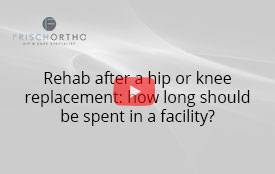FAQs
General
How do I make an Appointment?
Simply call us at during our working hours or you can request an appointment online using this form.
Do I need a referral to make an appointment?
We are happy to see anyone! If you don’t have a referral, please check with your insurance company to see if a referral is necessary.
What to bring for your initial consultation?
For your initial consultation, you will need to bring a referral letter from your physician if necessary.
Here is check list for your initial consultation
- Driver’s License or a valid ID
- Insurance information
- Referral Letter (if required)
- X-rays, MRIs, CT scans etc. and any other relevant information (please do not just bring the report, rather ask for a CD with the images for appropriate review and interpretation during your evaluation)
- List of medications (if any)
We encourage you to come to your initial consultation with a written list of questions to ensure you don’t forget to ask them when you are seeing the doctor.
Are my medical records kept private and confidential?
Your medical file is handled with the utmost respect for your privacy. Our staff is bound by strict confidentiality requirements as a condition of employment regarding your medical records. We will not release the contents of your medical file without your consent.
Who do I contact after hours?
There will be a point of contact 24 hours a day for any concerns you may have. You will be provided with contact details following your treatment.
After hours number: (248) 377-8000
Medical
What are the non-surgical treatment options?
The non-surgical treatment options include rest, medications including analgesics and antibiotics, injections, and physical/occupational therapy.
Will physical therapy be required after surgery?
Outpatient physical therapy will be discussed at your first post-op appointment. This is not a requirement for all patients and will be determined individually as needed. Physical therapy will be scheduled for approximately two to three times a week and last an average of six to eight weeks.
What are the risks associated with surgery?
As with any surgery, risks include reactions to anesthesia, bleeding, infection, stiffness and nerve damage. Your doctor will discuss the risks associated with your specific procedure.
When can I return to daily activities?
This varies depending on the type of procedure undergone, and can range from a few days to a few months. Limit activity to your home during your first week following surgery. You may continue icing and elevating as instructed. Minimize your activities and limit physical activity to your home exercises to help minimize swelling. Return to all activities, sports and exercise can take up to four to six months. Your doctor will advise you depending on your health condition.
What can happen if surgery is avoided?
Some complications of not undergoing an orthopaedic surgery for your condition include pain, loss of joint motion, joint weakness, numbness and an early onset of arthritis.
What are the most common injuries?
The most common orthopaedic injuries are sprains and strains, fractures, and dislocations. Injuries can occur when playing indoor or outdoor sports or while exercising. Sports injuries can result from accidents, inadequate training, improper use of protective devices, or insufficient stretching or warm-up exercises.
How long do I need time off work after the surgery?
Your ability to return to work will largely depend on the type of work you do (desk job, laborer, etc.). Everyone will be different, and estimations may vary based on comfort and progression after surgery, but in general: a desk job: 1 week, standing job: 2-4 weeks, hard labor: 6-8 weeks.
How long before I can resume driving?
Usually, you can resume driving after you are off your pain medication and feel strong enough and safe enough to drive. If surgery was performed on your left leg, assuming you don’t drive a manual transmission vehicle, you can start driving once off narcotic pain medication. If surgery was performed on your right leg, you can typically resume driving between 2-3 weeks after surgery.
When can I resume exercise?
Your doctor will instruct you about post-treatment exercises – the type and the duration to be followed. You may be referred to a physical therapist to help with strengthening and range of motion exercises following surgery.
































